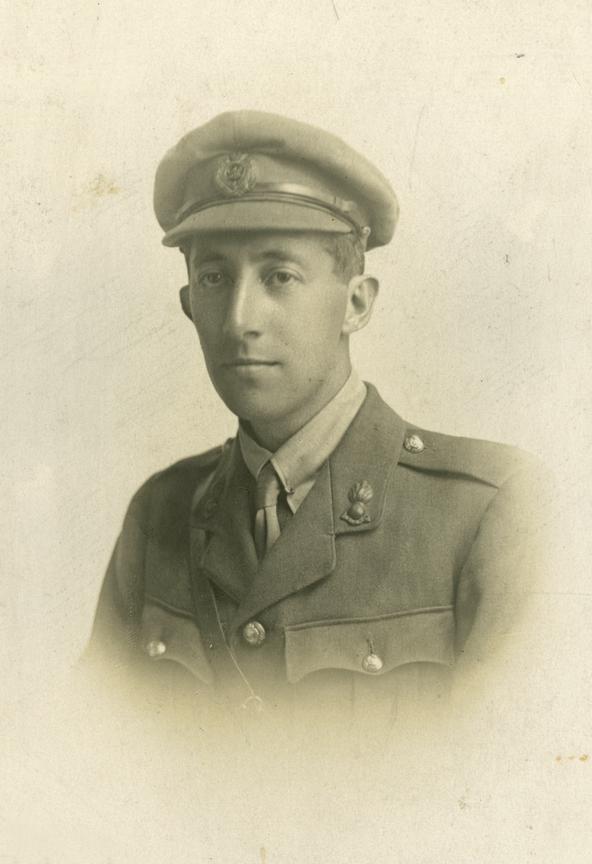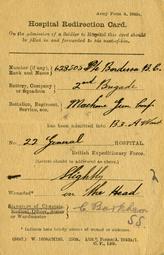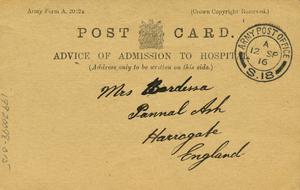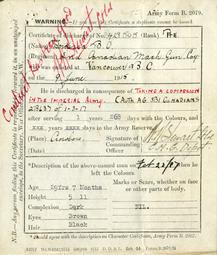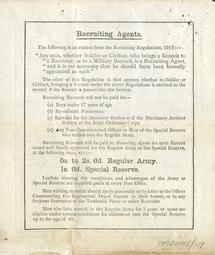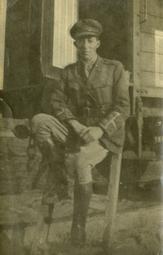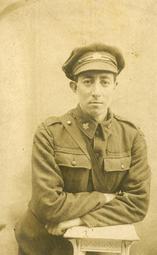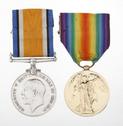Unit
2nd Canadian Machine Gun Company
Branch
Service Component
Canadian Expeditionary Force
Service Number
428505
birth
1887/07/29
Chester, United Kingdom, England
death
1990/04/11
United Kingdom
grave
Saint John’s Cemetery, Toronto
Gender
Male
Bernard Cuthbert Bordessa was born on 29 July 1887 in Chester, United Kingdom, to Pietro and Dorothy Bordessa. According to the 1901 United Kingdom census, his father was a farmer living on Pannal Ash farm with 3 children, Bernard being the second, and 4 servants. By 1911 Bernard is still living with his family but working as a civil engineer for the local authority. In 1912 he left for Canada, arriving in Quebec City on 31 May. In 1913 he was working on the engineering crew of the Great Trunk Railway. While in Canada he joined the 11th Irish Fusiliers of Canada, a militia regiment formed in Vancouver in 1913.
On 11 June 1915 Bordessa attested for the Canadian Expeditionary Force (CEF) in Vernon British Columbia, indicating that he had been working as an engineer and listing his father, still living on the Pannal Ash farm in Yorkshire, as his next of kin. He was taken in to the 47th Canadian Infantry Battalion (British Columbia) and shipped out for England, arriving there on 23 November 1915 aboard SS Missambie. There he was taken on strength with the 32nd Reserve Battalion. He was briefly transferred to the 30th Battalion (a British Columbia reserve group) and in June 1916 to the 86th (Machine Gun) Battalion, later known as the Machine Gun Depot, formed to provide machine gunners to CEF units. In July of that year he was transferred to the 2nd Brigade Machine Gun Company (attached to 1 Canadian Division) and shipped out to France. He appears to have been engaged in action on the Somme, and on the 9th of September received a gunshot wound to the head and was sent to the hospital at Étaples in France to recover. The wound was evidently not severe and within a month he was back with his unit in the field. Shortly after this, however, it appears that the Imperial Army was looking for trained engineers and he was selected for commissioning in the Royal Engineers. He was transferred back to the Machine Gun Depot in England for administration while he completed his training and, when his commission was confirmed, as a Lieutenant, Royal Engineers. He was stricken from the rolls of the CEF on 8 August 1917.
Upon Lieutenant Bordessa’s discharge from the Imperial Army he went back to the family farm in Yorkshire, according to local voters’ rolls. When he returned to Canada, he purchased land in Canoe, British Columbia, through the Soldier Settlement Board. The acreage was purchased in 1921 and Bordessa appears as an apple farmer from 1921 to 1936. During that time Bordessa also served as a civil engineer in several locations in British Columbia until he was permanently employed by Western Air Command and the British Columbia Electric Company, now known as BC Hydro. On 27 July 1927, he married Dorothy Denison and the couple had two children, Bobby and Eileen. Bobby only lived to the age of 11 due to a missing Thymus gland. The family had sold their property sometime prior to his death and moved to Vancouver. Local voters’ rolls show him living in Vancouver with Dorothy in 1949 and 1953, working as an engineer. Dorothy passed away in 1981. Bernard Cuthbert Bordessa returned to the United Kingdom and died there on 11 April 1990 at the age of 102. His remains were repatriated to Canada and he is buried in Saint John’s Cemetery in Toronto with his wife.

